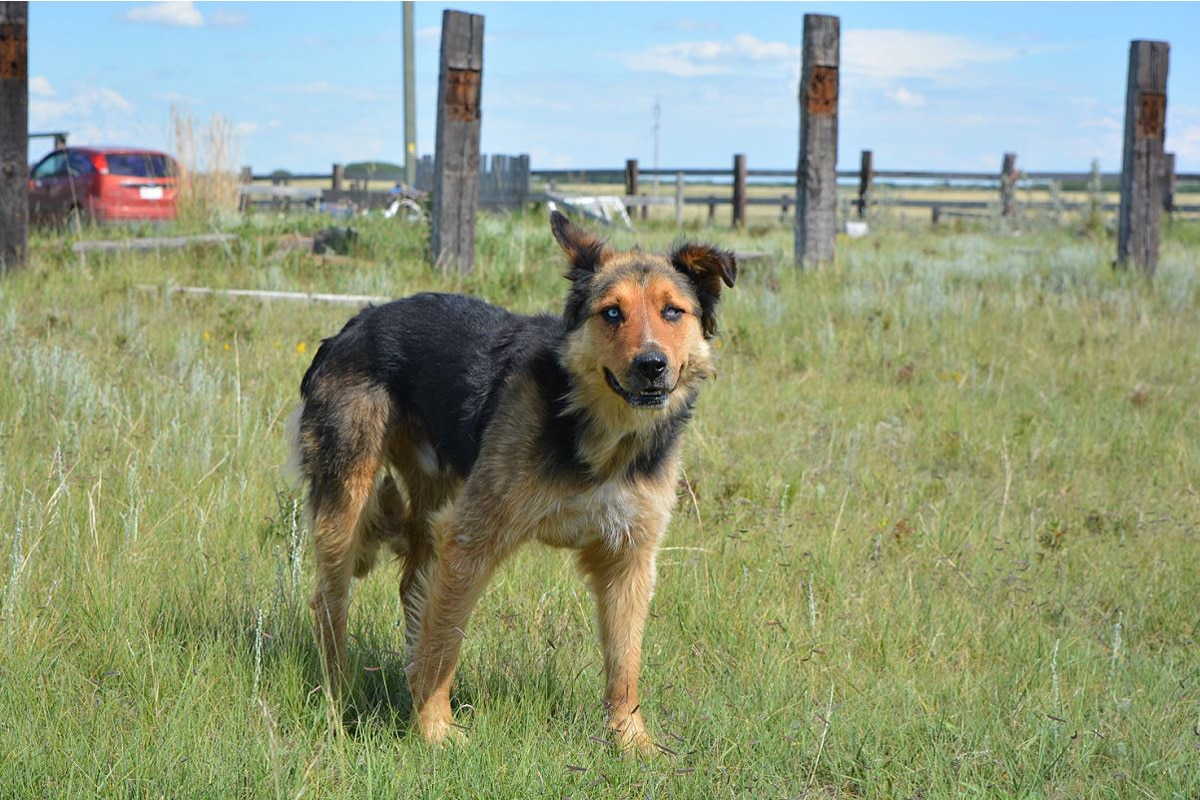Program Overview
The Dog Care and Management Program (DCMP) provides resources, guidance, and assistance to communities to implement a community-based, humane, and comprehensive dog management program. The DCMP focuses on long-term outcomes and achieving positive impacts on the well-being of the dogs and the community.
The CATF Dog Care and Management Program has been recognized locally, nationally, and internationally. Alanna Collicutt, our DCMP Manager, has been invited to share her knowledge and experience in free-roaming dog communities at national and international conferences, including Humane Canada’s National Animal Welfare Conference and the International Companion Animal Management Coalition Conference.
In 2019, Alanna and M. Josh Littlechild, the Ermineskin Cree Nation Tribal Law Coordinator, were honoured to speak at the Canadian Animal Law Conference about First Nations animal welfare opportunities, with a focus on progressive legislation.
For over four years, we have partnered with the Siksika Nation, providing guidance, resources, and training. The program has reduced dog bites and improved the welfare of dogs in this community. CATF is currently working with additional First Nations that have requested our assistance with implementing humane bylaws and other components of the program.
This is not just a program, but a movement; we’re excited to be a part of the future of animal welfare in First Nations communities.

FOUNDATIONal elements
The DCMP is grounded in our experience and knowledge in free-roaming dog communities, as well as the research conducted by the International Companion Animal Management Coalition, a consortium of animal welfare organizations who share the goal of effective companion animal population management. Our guiding principles are:
Community Based (+Community Engagement)
Programming resides with the local government to keep programming culturally relevant and unique to the community.
Humane
Any community that we assist with programming shares our beliefs and values regarding animal welfare and eliminating animal neglect and abuse.
Comprehensive
Make use of a variety of program components to make long-term, positive impacts.
Long-Term
Short-term approaches to dog management can drain finances and resources. Communities benefit most from long-term, sustainable solutions
Components of the Program
Research consistently shows that dog programs are most effective when a variety of tools are used. To that end, the DCMP has many components available to communities seeking assistance:
Legislation
Creation and implementation of bylaws and humane enforcement. We provide a bylaw template and Animal Control Officer training and mentorship.
Registration and Licensing
Collecting information about the dog population and registering / licensing dogs.
Information Sharing
Educational programming on bite prevention, bylaws, animal care, building your own doghouse, and more. We can also provide workshops on improving human-dog relationships. See Educational Resources below for more info.
Accessible Spay and Neuter Programs
We provide high-volume on-site clinics for dogs and cats. We can also assist with spay/neuter and return programs! Learn more about our spay and neuter clinics here.
Accessible Veterinary Care
For remote communities without reasonably accessible veterinary care.
Holding or Re-Homing Facility
We can facilitate relationships between a Nation and a local animal welfare organization who can assist with rehoming, and in some cases also board impounded dogs.
Management of Resources
Assist with disbursement of donations of food and supplies, manage funds, and manage problem areas where dogs congregate
Educational Resources
Dog Care and Management Workshop
We offer a workshop for animal welfare organizations and individuals who provide programming in First Nations communities or are considering assisting a community. It offers a comprehensive look at dog population dynamics and offers tools, assessment, planning, and suggestions for working together in a community. This workshop is two days of participatory activities, sharing and learning! We received excellent feedback from pilot participants.
Further Reading
ICAM - Humane Dog Population Guidance
International Companion Animal Management’s Humane Dog Population Management Guide is helpful for anyone wanting to use programming to improve human-dog relationships.
IFAW - Living in a Good Way with Dogs
The International Fund for Animal Welfare’s “Living in a Good Way with Dogs: Our Stories” is the only resource about dogs and community by First Nations, for First Nations. The units are easy to integrate with the school curriculum while building knowledge and skills around living safely and kindly with dogs.
CATF - Dog Care and Management
Outlines the background and components of the Community Dog Care and Management program developed by the Canadian Animal Task Force.
Videos
Watch our video “Staying Safe with Free Roaming Dogs,” funded by Dogs Trust International.
Local, National, and International Involvement
Our Dog Care and Management Program Manager, Alanna, attended the Canadian Animal Law Conference in Halifax, Nova Scotia in October 2019. Alanna and M. Josh Littlechild, the Ermineskin Cree Nation Tribal Law Coordinator, were honored to speak to the conference delegates about First Nations animal welfare opportunities with a focus on progressive legislation.
We were delighted when Barb Cartwright of Humane Canada introduced Alanna and Josh to Senator Senator Yvonne Boyer.
Thank you to Animal Justice and the Schulich School of Law at Dalhousie University for planning an excellent conference with world class speakers.
Alanna was also invited to present at the October 2019 International Companion Animal Management Coalition Conference in Kenya. She arrived home with an enormous amount of information, tools and knowledge regarding humane dog population management! We are very grateful to Dogs Trust International for sponsoring the trip!
The CATF Dog Care and Management Program is not just a program, but a movement. Many important stakeholders across Canada are starting to take notice and we are very excited for the future of animal welfare in First Nations communities.









